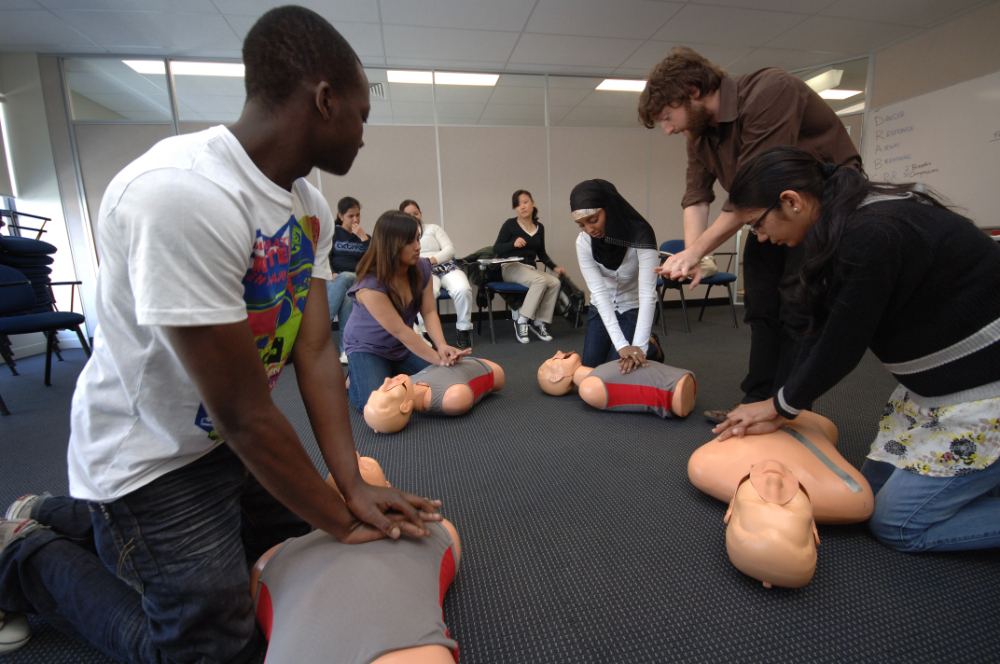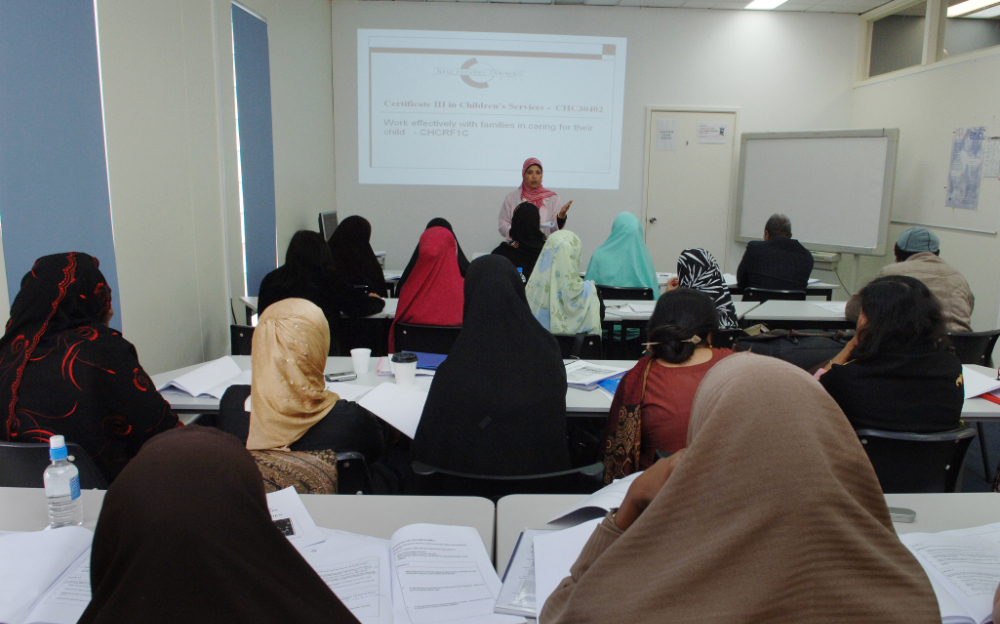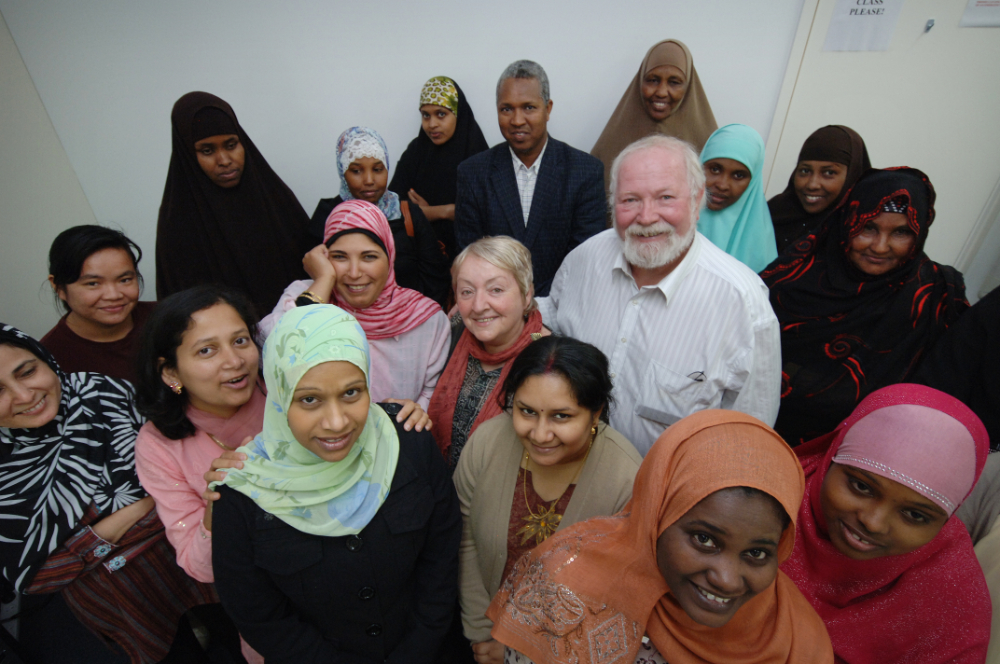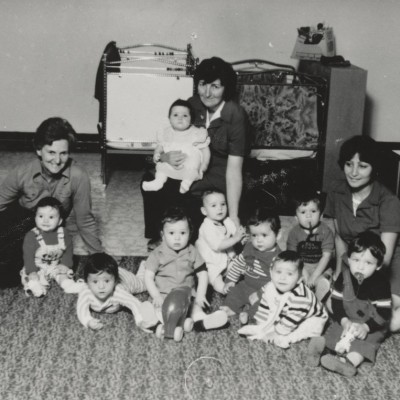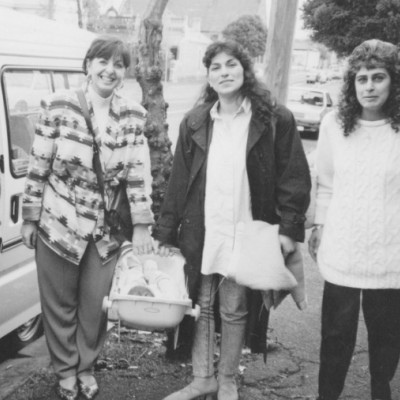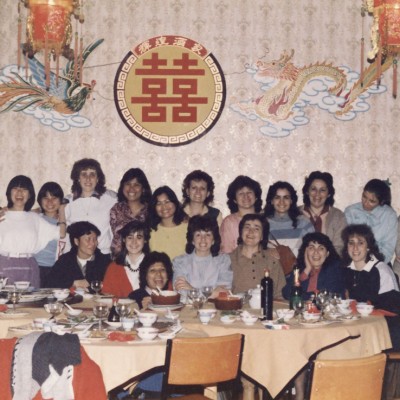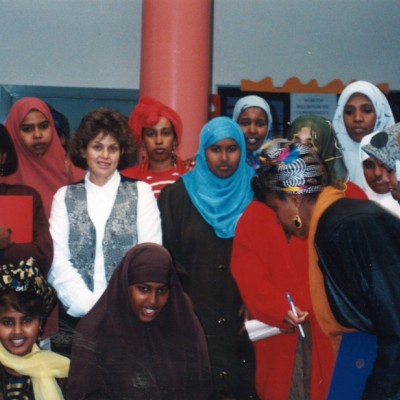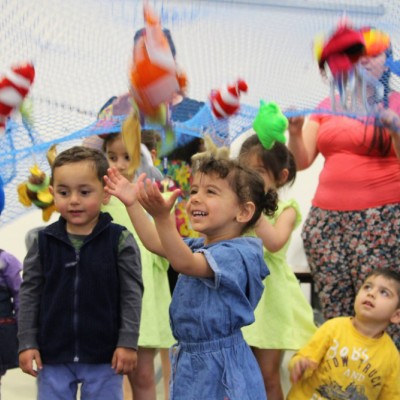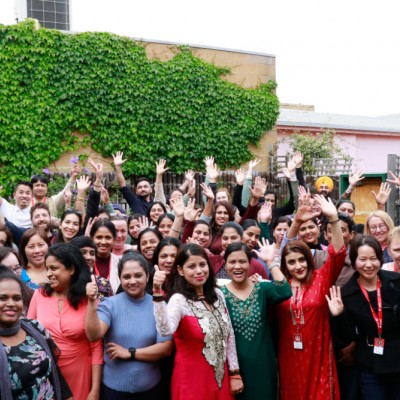I think in the last ten years the organisation’s identity is no longer VICSEG. It’s now VICSEG New Futures because that better reflects the nature of the organisation, which is both the original Victorian Co-operative on Children’s Services for Ethnic Groups and New Futures Training.
John Zika, 2022
After almost 20 years of involvement in training initiatives and an extended period of dedicated work to achieve RTO status, VICSEG’s registered training organisation New Futures Training was launched in 2002. This allowed VICSEG greater capacity to apply for federal and state funding and the autonomy to run its own training courses. VICSEG staff no longer had to negotiate with other education institutions and could develop their own resources and programs that were specifically designed to provide students from migrant and refugee backgrounds with recognised qualifications.
Once it became registered as an RTO, the training and course development side of VICSEG took off and the organisation branched into two main areas of service: training and community development. Over the next two decades there was rapid expansion of staff and student numbers, as well as physical campuses and locations. The core values of the organisation – putting people first and embracing and celebrating cultural diversity – remained key priorities, but VICSEG’s identity began to extend beyond its original focus and the organisation became known as VICSEG New Futures.
New Futures Training
Since its inception in 2002, New Futures Training has grown and expanded, offering courses not only in childcare but also in aged care, health, first aid, disability services, community, youth and family violence, and most recently, clothing and textiles. Another important aspect of New Futures Training has been the development of Family Day Care courses, which train carers to look after children in a home environment, rather than in a childcare centre. This arrangement is particularly popular within the Somali community. Since its first Home-Based Child Care training course in 1995, VICSEG New Futures has continued to offer training to women interested in working in Family Day Care. With the federal government’s uncapping of Family Day Care in 2006, women from African backgrounds began establishing their own businesses and employing carers from their own communities. Through New Futures Training, VICSEG New Futures has been able to successfully provide these women with the required training and qualifications to work in Family Day Care.
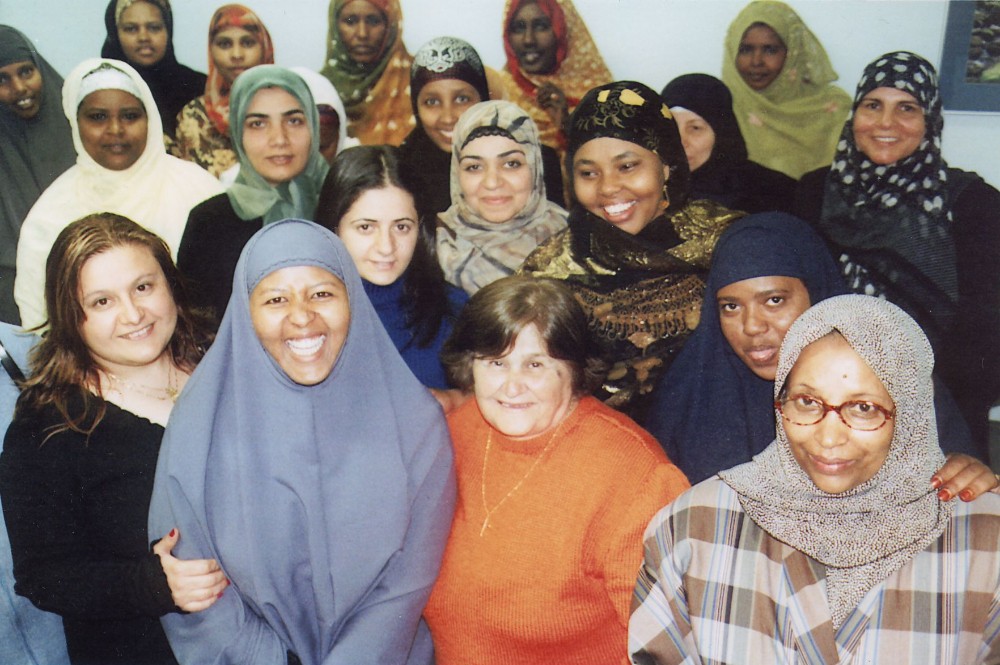
Istarlin (front, in blue), one of VICSEG New Future’s first trainers, with staff and students, c. 2002.
The course offerings at VICSEG New Futures come from student demand as well as employer needs. ‘First of all, we had a huge demand to train people of multicultural backgrounds in childcare’, recalls Maree Raftis, ‘we were getting lots of calls from employers, saying “We need your people, we need bilingual people”.’ This demand soon shifted into aged care as well.
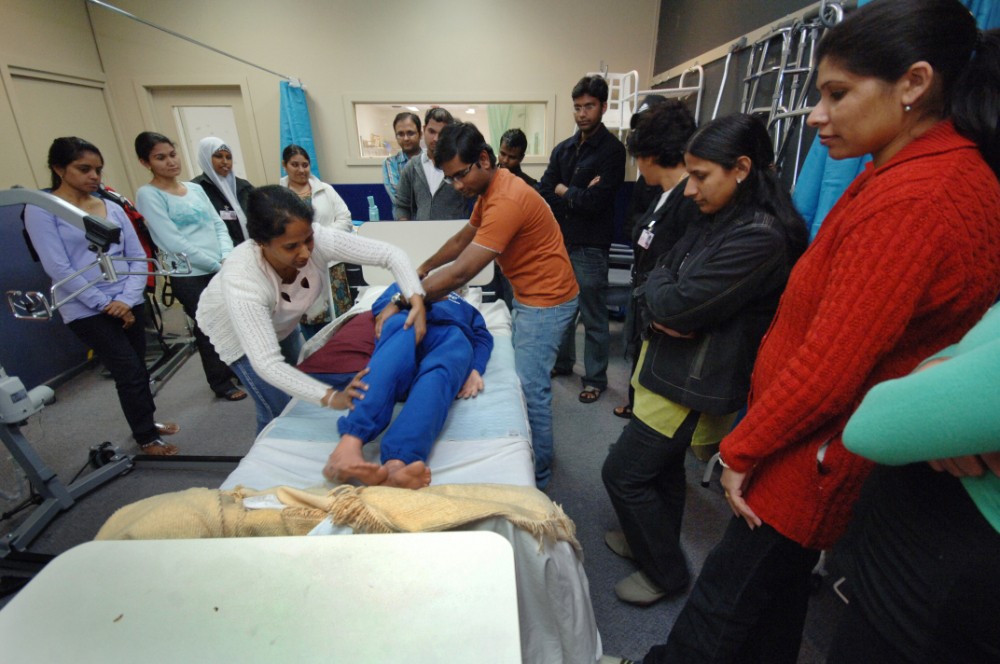
Students taking part in aged care training.
The success of VICSEG New Futures’ early efforts in providing training programs to unemployed migrant and refugee women had a lasting impact on the lives of many participants. Farah arrived in Australian from Pakistan in 2018 with 21 years of experience working as a principal, teacher, trainer and school inspector. Much to her dismay, however, her numerous tertiary qualifications were not recognised in Australia. ‘When I realised that my qualifications were not recognised in Australia, it was a blow to my career, experience and confidence’, recalls Farah.
Farah enrolled in a Certificate III in Early Childhood Education and Care through VICSEG, followed by a diploma in the same area. As she recalls, ‘I had an amazing teacher and lovely classmates … During my studies I found a very good job as an educational leader and a Montessori mentor’.
Swapna was born in India but grew up in Qatar where she completed her Bachelor of Business Administration. After five years working in the airline industry, she and her husband moved to Australia where she was unable to find work in her industry due to her visa status and lack of local experience. Swapna decided to retrain and after exploring a number of different courses, decided on VICSEG New Futures where she completed a Certificate III in Childhood Education and Care and a Diploma in Early Childhood Education and Care. She found work in childcare centres as an educator and room leader and now has a leadership role in a primary school.
Hats off to the instructors who took time for me during their busy schedule, to clarify the questions I was unsure about. When you attend classes, instructors explain each and every bit of the chapter with an example and it makes you understand much better. VICSEG has changed my life and my career has always grown happily.
Swapna, VICSEG New Futures student
The rapid growth of New Futures Training opened up a wide range of education and employment opportunities to migrant men and women with a wide variety of backgrounds, needs and interests. The student completion, satisfaction and employment outcomes from VICSEG New Futures training sit well above the average for RTOs in Victoria. What makes VICSEG New Futures different and special is the fact that no matter how big the organisation grows or how many students come through its doors, it remains people-first and people-focused.
Simran Udas is a former student of VICSEG New Futures and is now the organisation’s Student Services Manager. Coming from a migrant background, having experienced the challenges that come with resettling in a new country with no support network, she perfectly understands the unique circumstances that New Futures students bring with them. In addition to coursework support, like homework groups, assessment practice and placement coordination, Simran and her team work with each student individually to make sure they have all the support they need to successfully complete their studies. ‘A lot of time there are so many things that’s going on in their life’, Simran comments, ‘that they can’t concentrate on their study and get things done … so I actually support them.’
When I was in a placement, this placement team made it happen … I had a little kid. No one to look after [her] and I could not afford childcare. They said, ‘We’ll find you somewhere close to travel and willing to take you between 9 to 2.30’, because that’s when my husband was available at that time. I do not know any placement team that are willing to do that … They’re just willing to find somewhere to get me into a placement which ended up fantastic. So that’s where I got my first job too as a support worker.
Jessie Paath, former VICSEG New Futures student and current TAFE trainer
It’s this level of personal care and commitment towards students that means VICSEG New Futures continues to produce such outstanding student completion and satisfaction results, year after year.
We get the best feeling when we hear from students, ‘I feel like I am a real person when I come to VICSEG New Futures. I feel valued. I feel that there’s always someone there who will help me.’
Maree Raftis, Executive Director, VICSEG New Futures
VICSEG New Futures celebrated 30 years of operations in 2011, the same year that dramatically transformed the organisation. Since its inception as an RTO in 2002, VICSEG New Futures had relied on small amounts of funding and grants to run its training courses and programs. ‘We started scratching around trying to run a class of ten people in childcare on $900 or bits and pieces we would get from the Department’, recalls Maree. But in 2011, under a new initiative called Skills for Victoria, VICSEG New Futures began to receive funding on a per student basis. ‘Suddenly we had amounts of money that were absolutely unheard of.’
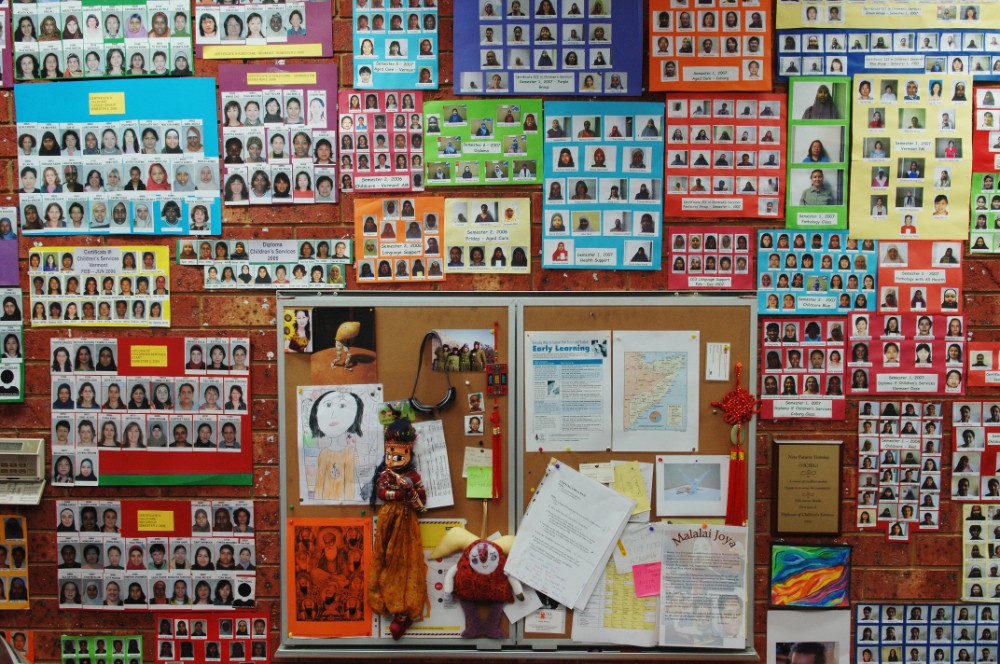
Former students decorate the offices of VICSEG New Futures in Coburg.
Under the framework of Skills for Victoria, VICSEG New Futures not only had a massive increase in student funding, but now had to operate within a new framework of accountability. ‘The opportunities that presented to us’, said Maree, ‘has probably been the biggest single change in the organisation. In fact, it enabled us to cross-subsidise a lot of the community programs which always just got by on very limited funding. We weren’t afraid of that anymore.’
Resources:
Farah’s story, https://vicsegnewfutures.org.a...
Interview with Jessie Paath, 3 November 2022.
Interview with John Zika, 1 September 2022.
Interview with Maree Raftis, 2 June 2011.
Interview with Maree Raftis, 2 September 2022.
Interview with Simran Udas, 20 September 2022.
Swapna’s story, https://vicsegnewfutures.org.a...
VICSEG, Annual Report, 2002, 2010.
